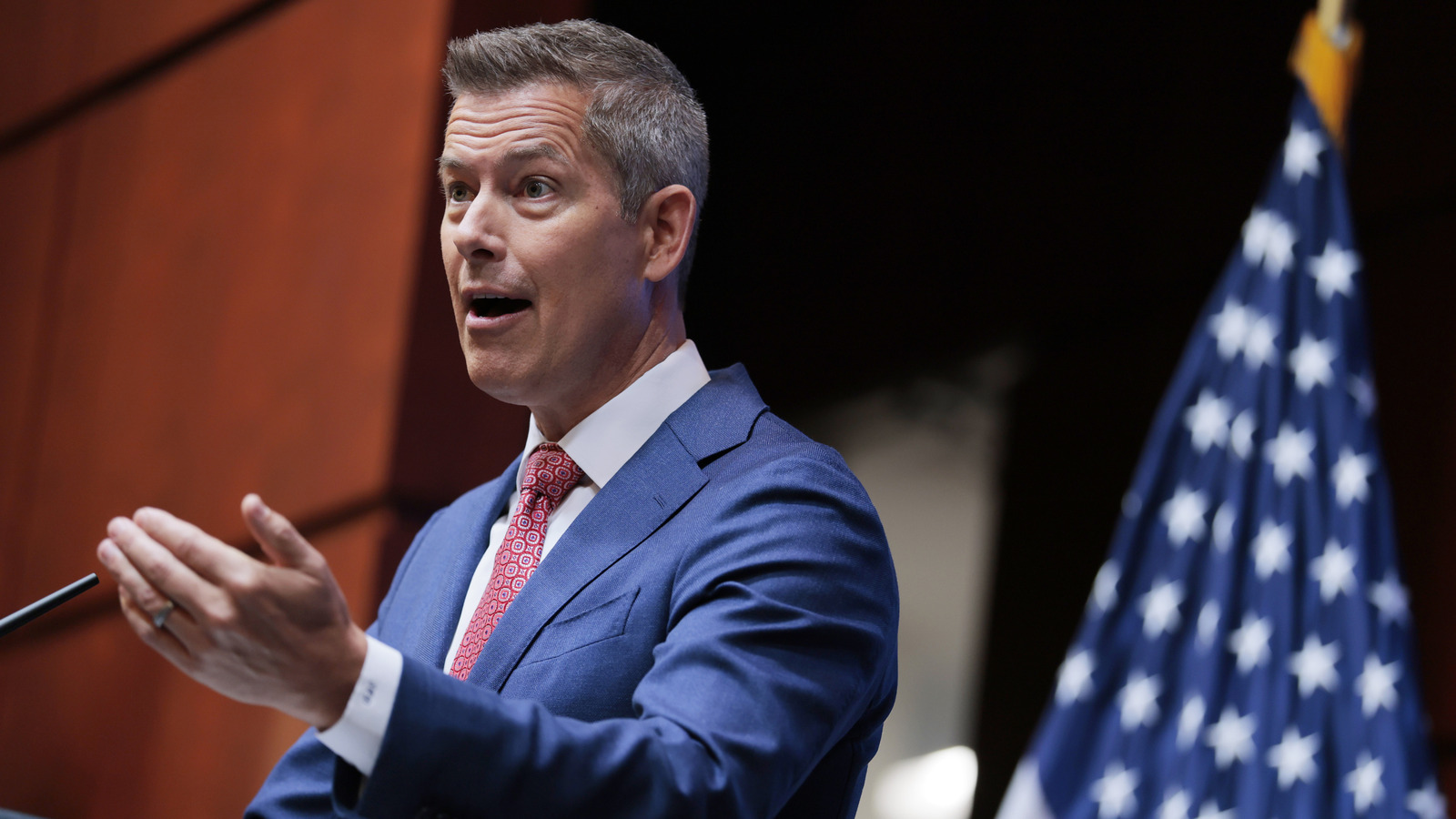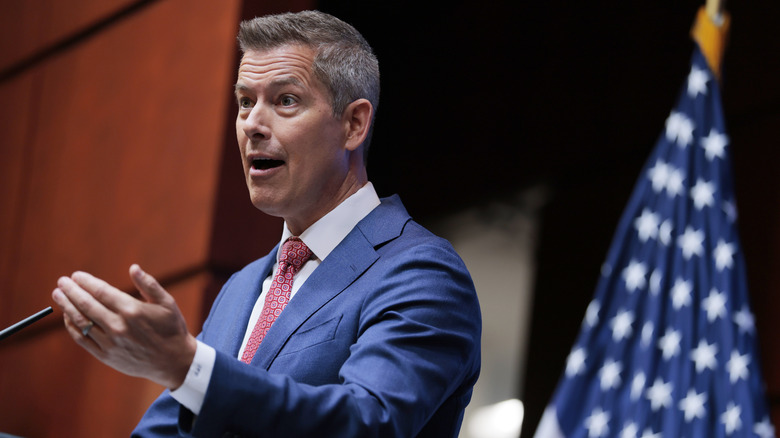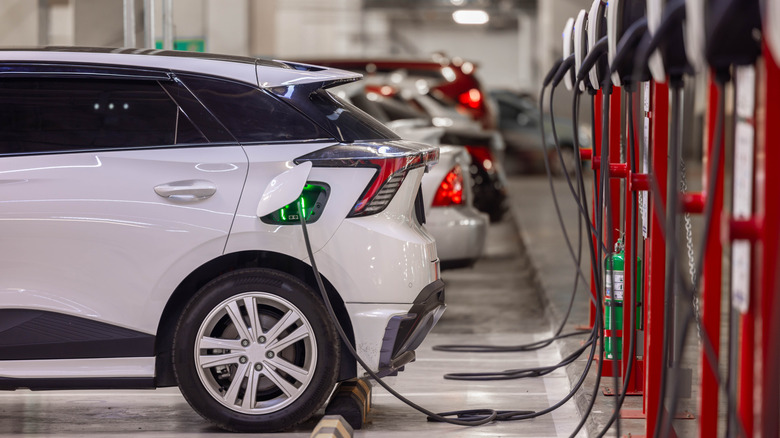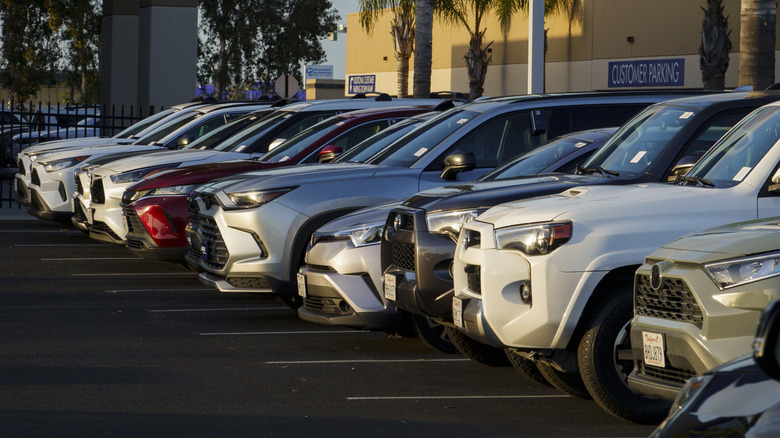The presence of Elon Musk in the Trump White House doesn’t seem to have affected the administration’s general hatred of electric vehicles. Automotive News reports that the Department of Transportation is expected to backtrack on Biden-era Corporate Average Fuel Economy (CAFE) standards, revising the numbers to address what Transportation Secretary Sean Duffy said in a statement was an illegal effort to use “CAFE standards as a backdoor electric vehicle mandate — driving the price of cars up.”
“Resetting CAFE standards as Congress’ intended will lower vehicle costs and ensure the American people can purchase the cars they want,” he added. Duffy’s move echoes a complaint lodged in January of 2024 by 120 Republican members of Congress. In a letter to the then-head of the National Highway Traffic Safety Administration, the GOP contingent called the CAFE standards an “out-of-touch de facto EV mandate” that “ignores the reality that most Americans still prefer the internal combustion engine vehicle, and the fact there is a lack of consumer demand for EVs.”
We could debate the health of the EV market all we want, but the problem here is that Duffy’s DOT — and Republicans in Congress — have grossly distorted what NHTSA actually did back in 2023 when it proposed new standards for cars and light trucks.
Everything changes when you look stuff up
I appreciate your patience with the rather dry way I had to set the stage. The bottom line is that the Trumpers, minus Musk, don’t like EVs and neither does the fossil fuel industry. Of course, it must also be said that the auto industry has historically battled CAFE standards, with some not-unreasonable arguments about timelines and how building compliance vehicles to hit the government’s marks doesn’t really serve consumer demand in the US.
Republicans in Congress and Duffy, however, aren’t inviting reasonable arguments. They are asking us to enter an upside-down world where those sinister bureaucrats at NHTSA willfully violated the law when they devised their recommendations. Last year, congressional Republicans wrote that despite a “clear statutory limitation, which NHTSA acknowledged in its proposal, NHTSA accounted for EVs in its regulatory baseline and factored that baseline into its determination of the maximum achievable CAFE standards.”
NHTSA did indeed note the statutory limitation, and carefully so. In fact, by the time the agency got around to issuing its final standards last June — 50.4 mpg by 2031 — it actually reiterated how much attention it had to pay to the law and how any sort of EV mandate was the opposite of what it was pursuing. If the agency considered EVs at all, it was to avoid making them too big a deal.
EVs have distorted the market, so the government focused on trucks
Thanks to the runaway success of Tesla, one segment of the US auto market is making terrific overall progress on improving MPGs and reducing emissions: passenger cars. NHTSA, under the Biden administration, pointed out that this made it appear as though the industry was “over-complying” when what was really going on was that a few pure-EV companies were skewing the baseline analysis.
Taking that into account, NHTSA basically said that passenger cars don’t have to increase their MPGs as rapidly as light trucks. It was a completely fair, sensible, and legal way to organize the recommended CAFE standards. And although one could push back on how soon the carmakers would have to meet the 50.4-mpg number (up from the current 39.1-mpg mark), the recommendation was kind of an anti-EV mandate, if you think about it.
The deceptive opportunism of congressional Republicans and Duffy is just stupefying here, calculated to accuse the Biden administration of forcing EVs on an unwilling public. That NHTSA under Biden sought to do neither of those things — and was at pains to focus on keeping more efficient gas-powered SUVs and pickups in the mix — was completely and predictably ignored. Biden’s DOT actually didn’t want carmakers to have to comply by building a bunch of expensive EVs in the face of ebbing consumer demand.
We can fight over whether 50.4 mpg by 2031 is achievable by any means, and we should, but let’s not allow a bunch of Trump-enthralled, EV-hatin’ Republicans to twist the facts of how we got here.





